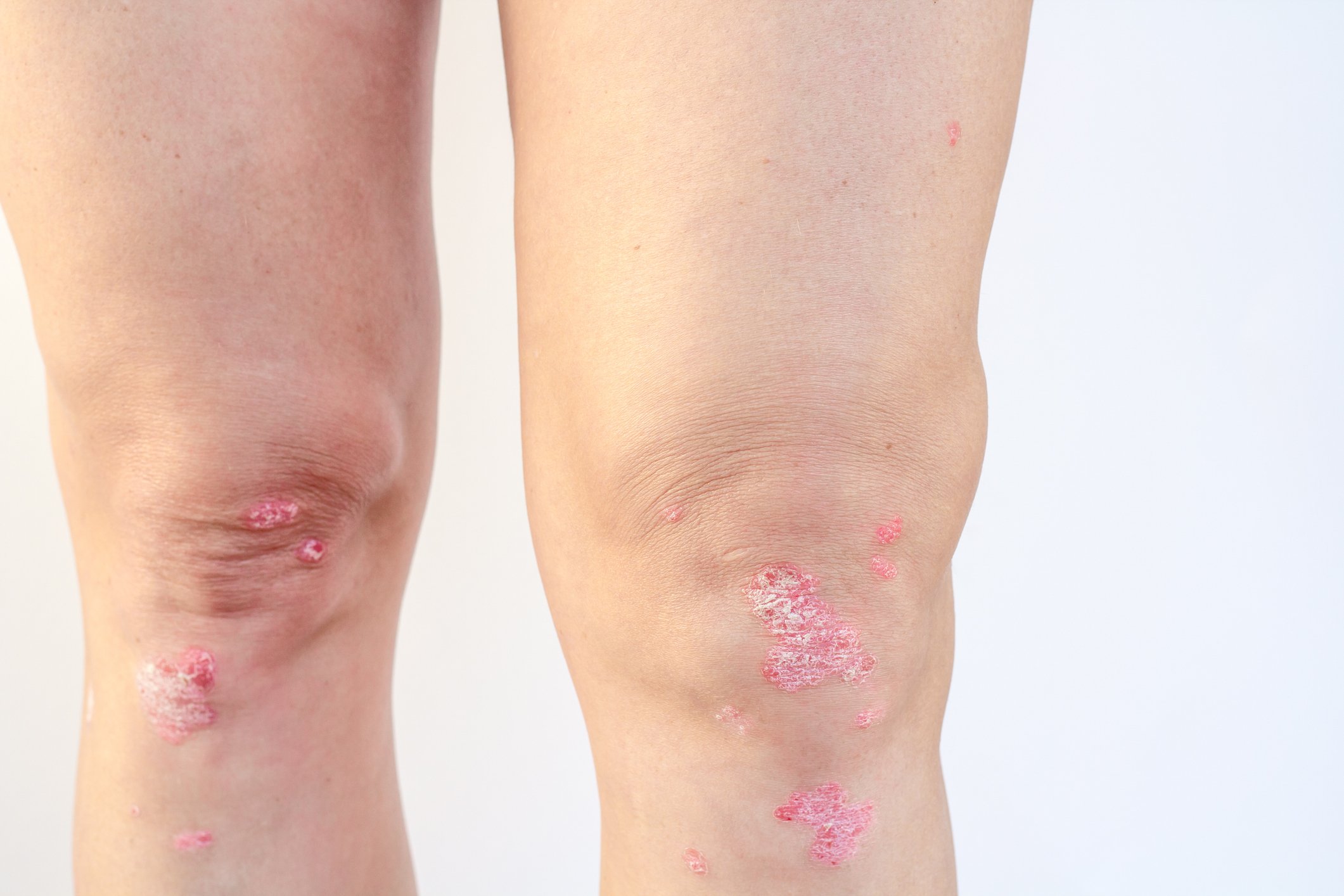Over the past several years, tyrosine kinase inhibitors directed against EGFR have gained acceptance as first-line treatment for advanced NSCLC with EGFR mutation. However, their role in adjuvant therapy of earlier stages is still unclear. According to current research results, osimertinib, erlotinib and co. are likely to be increasingly used in this setting soon as well.
While EGFR (epidermal growth factor receptor)-targeted therapies are considered the first-line standard of care in advanced non-small cell lung cancer (NSCLC) with EGFR mutation, their use in less advanced disease stages is more reserved. For a long time, adjuvant cisplatin-based chemotherapy was considered the treatment of choice in tumor stages IIA-IIIB after resection, regardless of EGFR mutation status [1]. However, such a treatment is often fraught with serious side effects. In recent years, more studies have been conducted to assess the efficacy and toxicity of EGFR tyrosine kinase inhibitors (TKIs) in this setting – with tangible, clinically relevant results: Meanwhile, the EGFR TKI osimertinib has been approved in Switzerland and the EU for adjuvant treatment of EGFR-mutated NSCLC after complete tumor resection [2,3].
Adjuvant treatment yes, but how?
Despite resection, the 5-year survival rate of patients with stage I to IIIA NSCLC is only 25-73% [4]. Accordingly, adjuvant therapy, which until now has mostly consisted of cisplatin-based chemotherapy, plays an important role. This is able to increase the 5-year survival rate in stages II-IIIA by about 5%, but also brings non-negligible toxicity [5]. Alternative adjuvant systemic therapies are thus in demand in the treatment of NSCLC. And with osimertinib, they are already available at least to those patients with EGRF mutation. But how do EGFR TKIs compare to chemotherapy?
This question was addressed in a recently published meta-analysis that included eleven studies [6]. In total, data from 1900 patients with EGRF-mutated NSCLC were analyzed. Eight studies were randomized-controlled trials, and three were retrospective in nature. The results from the meta-analysis suggest that adjuvant therapy using EGFR TKIs after complete resection is likely to be superior to other adjuvant treatment options. Thus, there were statistically significant improvements in disease-free survival (DFS) and overall survival (OS). The authors compared outcomes under adjuvant EGFR TKI administration (with or without chemotherapy) with those under chemotherapy alone or placebo. Overall, the DFS hazard ratio with EGFR-TKI treatment was 0.42 (95% CI 0.31-0.57), and that of overall survival was 0.62 (95% CI 0.45-0.86). These results support conjectures that have already emerged from previous studies and argue for the previously controversial use of EGFR TKIs even in less advanced stages of the disease [7–10].
Many open questions
Even if adjuvant use of EGFR TKIs in NSCLC has shown promise to date, many questions remain. For example, it remains unclear at what stage patients benefit most from EGFR-targeted therapy. In addition, the exact treatment duration and optimal treatment regimen have yet to be evaluated. Among other things, the question also arises whether and in which cases a combination with adjuvant chemotherapy, radiotherapy or even anti-VEGF therapy is useful.
Literature:
- Kris MG, et al: Adjuvant Systemic Therapy and Adjuvant Radiation Therapy for Stage I to IIIA Completely Resected Non-Small-Cell Lung Cancers: American Society of Clinical Oncology/Cancer Care Ontario Clinical Practice Guideline Update. Journal of Clinical Oncology. 2017; 35(25): 2960-2974.
- Medicinal product information of Swissmedic. www.swissmedicinfo.ch (last accessed 07/31/2021)
- Griesinger F, et al: Onkopedia guideline lung cancer, non-small cell (NSCLC). Status July 2021. www.onkopedia.com/de/onkopedia/guidelines/lungenkarzinom-nicht-kleinzellig-nsclc/@@guideline/html/index.html#ID0EY2AG (last accessed 07/31/2021)
- Vansteenkiste J, et al:2nd ESMO Consensus Conference on Lung Cancer: early-stage non-small-cell lung cancer consensus on diagnosis, treatment and follow-up. Ann Oncol. 2014; 25(8): 1462-1474.
- Preoperative chemotherapy for non-small-cell lung cancer: a systematic review and meta-analysis of individual participant data. The Lancet. 2014; 383(9928): 1561-1571.
- Yin Q, et al: Efficacy of Epidermal Growth Factor Receptor Tyrosine Kinase Inhibitors in the Adjuvant Setting for Patients with Resected Epidermal Growth Factor Receptor Mutant Non-Small Cell Lung Cancer: A Meta-Analysis with 11 Trials. Oncology Research and Treatment. 2021; 44(6): 344-353.
- Lv C, et al: A Retrospective Study of Stage I to IIIa Lung Adenocarcinoma After Resection: What Is the Optimal Adjuvant Modality for Patients With an EGFR Mutation? Clinical Lung Cancer. 2015; 16(6): e173-e181.
- Xie H, et al: Gefitinib Versus Adjuvant Chemotherapy in Patients With Stage II-IIIA Non-Small-Cell Lung Cancer Harboring Positive EGFR Mutations: A Single-Center Retrospective Study. Clinical Lung Cancer. 2018; 19(6): 484-492.
- Zhong WZ, et al: Gefitinib versus vinorelbine plus cisplatin as adjuvant treatment for stage II-IIIA (N1-N2) EGFR-mutant NSCLC (ADJUVANT/CTONG1104): a randomised, open-label, phase 3 study. Lancet Oncol. 2018; 19(1): 139-148.
- Yue D, et al: Erlotinib versus vinorelbine plus cisplatin as adjuvant therapy in Chinese patients with stage IIIA mutation-positive non-small-cell lung cancer (EVAN): a randomised, open-label, phase 2 trial. The Lancet Respiratory Medicine. 2018; 6(11): 863-873.
HAUSARZT PRAXIS 2021; 16(9): 52
InFo ONCOLOGY & HEMATOLOGY 2021; 9(4): 42.
InFo PNEUMOLOGY & ALLERGOLOGY 2021; 3(4): 32.












